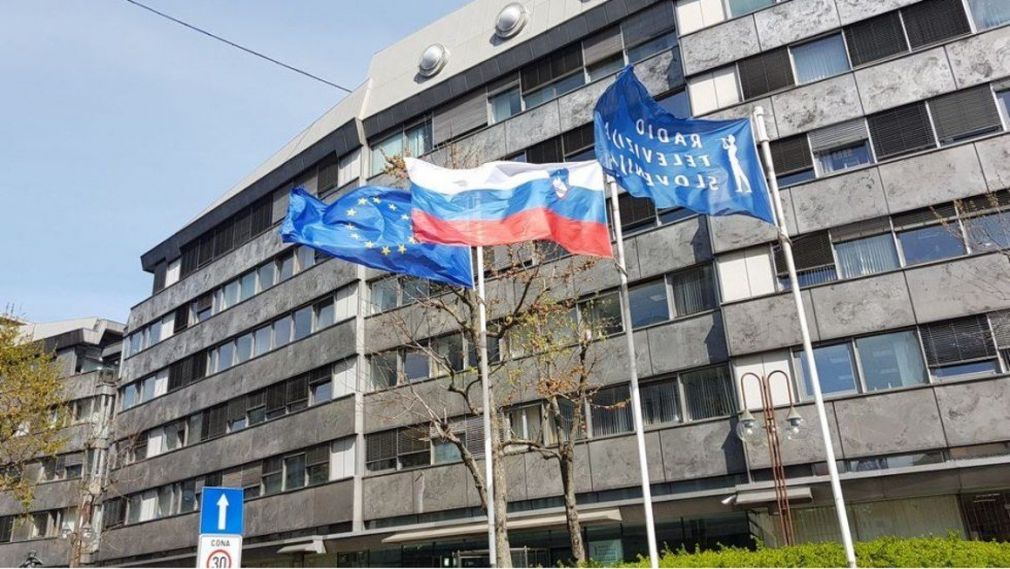Miro Petek, a former journalist who was brutally beaten, pointed out a certainly interesting fact. He highlighted the fact that Slovenia’s national public broadcasting organisation RTV Slovenia has about the same number of employees as the Slovenian Armed Forces. It would certainly be important for Slovenian to have an objective public media outlet (which is something that RTV is not), but on the other hand, we should be seriously concerned if, in the event of war, “entertainment” is more important to us than security. However, despite the low number of soldiers, our impoverished Army continues to help the citizens in their daily lives. After all, it helps save lives of those lost or hurt in the mountains, and it has also proved to be essential during the epidemic when it helped provide equipment and set up a ward for covid-19 patients.
Former journalist Miro Petek started an interesting debate on Twitter with the question: “Can a country that employs almost the same number of people on the public RTV as there are soldiers in its army survive?” According to the data he published, RTV employs 2,272 people, whereas the Slovenian Army has 2,297 employees.
RTV consists of five television stations and eight radio programmes, which include news, cultural, entertainment, sports, and educational programmes. It also has a symphony orchestra, the Big Band orchestra, children’s and youth choir. They also take care of the transmitters and communication channels, an online archive, and have an interactive web portal MMC. It certainly must be admitted that in theory, RTV provides a wide range of entertaining content, but on the other hand, many viewers are critical of its growing fondness for the left-wing activists and also accuse it of being biased.
Many have already suggested that the mandatory RTV contribution be abolished, which would undoubtedly be a severe blow to the public institution, which, despite receiving one hundred million euros in contributions, is drowning in red numbers. What will happen to RTV when the new management takes office is not yet clear. In April, the current Director Igor Kadunc will be replaced by Andrej Grah Whatmough. The future Director-General announced financial remediation.
The new Director wants to reduce labour costs
Dnevnik reports that RTV SLO will reduce the labour costs by retiring the employees who meet the criteria for retirement (but may not yet want to retire). In doing so, Grah Whatmough announced a thoughtful and systematic approach and individual treatment of anyone who might retire. It is not yet clear whether the new Director will succeed in the consolidation of RTV. It is clear, however, that private television stations cannot afford such casualness.
The generation born after 1991 has no sense of what it is like to live during a war; however, their parents still remember it. If we were to go back 30 years today, we would not be arguing about whether to invest in the military or not. Certain representatives of the left do not know what it is like to face a war without a prepared army. Assessments of the readiness of the Slovenian Armed Forces are poor, and soldiers are participating in missions abroad in extremely poor equipment, so the risk that they are taking is all the greater because of it. Not to mention the non-fulfilment of commitments to our NATO allies.
The Army is not important only in wartime but also in everyday life
The military is not only important in wartime but also in everyday life. This weekend, it intervened at least twice, namely, in rescuing an injured backcountry skier in the fifth gorge on Storžič. Similarly, mountain rescuers had to use the helicopter of the Slovenian Army to rescue a mountaineer who died in an accident under Kalška gora. A few months ago, soldiers also helped with the quick adaptation of the premises at the University Medical Centre Ljubljana, where they set up an emergency department for covid-19 patients in record time. Let us also remind you of the event in 2018, when water leaked in an apartment building in Laško and the crew of the Slovenian Army helicopter, along with the Emergency Medical Aid team from Ljubljana, had to transport a baby in an incubator. Numerous examples prove that the military saves lives.
Sara Rančigaj


